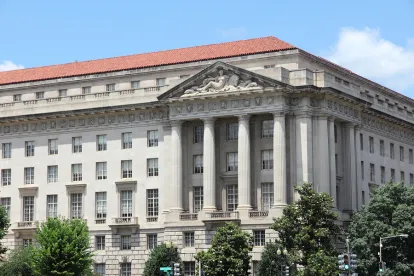The Coronavirus Disease 2019 (COVID-19) outbreak has affected every sector of our national and global economy, with profound impacts on business operations that stretch resources thin and create challenges to comply with state and federal environmental regulations. For example, stay-at-home orders or illness may keep employees or contractors away from work, making it difficult to comply with waste disposal, sampling, or equipment inspection requirements. Unanticipated shutdowns of non-essential businesses may generate excess emissions. Companies ramping up or shifting production in response to demand for COVID-19-related products may find that well-intentioned actions changed their permitting or some other regulatory status.
Faced with these challenges, a company’s first line of defense is compliance. If that is not possible, the scope, nature, and duration of non-compliance should be minimized.
While the coronavirus may be novel, enforcement discretion in times of national emergencies is not. The U.S. Environmental Protection Agency (EPA) and the states have used enforcement discretion as a flexible tool for decades – from national or statewide formal governmental pronouncements to case-by-case decisions e-mailed to individual companies. At the national level, EPA has issued “No Action Assurance” letters announcing it would not enforce certain environmental requirements in the wake of natural disasters such as Hurricanes Katrina, Maria, Michael, and Dorian. Earlier in March, major trade associations representing the petrochemical and waste management sectors were already asking EPA to make a formal enforcement discretion pronouncement during the COVID-19 crisis.
On March 26, 2020, EPA issued a memorandum outlining the Agency’s COVID-19 enforcement response and discretion policy. The policy retroactively takes effect on March 13, 2020, and provides enforcement flexibility for certain civil violations. Among some examples: routine compliance monitoring and reporting; settlement agreement and consent decree reporting obligations and milestones; certain air emissions and water discharges; timely disposal of hazardous and concentrated animal feeding operation waste; and drinking water monitoring. EPA emphasizes that facilities should make every effort to comply, and that if compliance is not achievable, operators should act responsibly to minimize the effects and duration of non-compliance, document the nature and dates of non-compliance and how COVID-19 was the cause, actions taken in response (including best efforts to comply), and return to compliance as soon as possible. Critical infrastructure facilities may receive more tailored No Action Assurance on a case-by-case basis. EPA is not exercising its enforcement discretion in regard to criminal violations, Superfund or RCRA Corrective Action activities, accidental releases, or imports. EPA’s exercise of enforcement discretion is not limited to official pronouncements from Washington, D.C., like the March 26 memorandum. Depending on the circumstances, enforcement discretion may be sought on a more informal case-by-case basis by EPA Regional Offices to more rapidly and flexibly address specific situations.
States also have long implemented enforcement discretion policies on both state-wide and case-by-case bases, and several have already issued guidance in the COVID-19 context. For example, the Texas Commission on Environmental Quality has extended the deadline for certain air emissions inventory reporting and has established an email process to field case-by-case requests from facilities for enforcement discretion. The Oregon Department of Environmental Quality has announced that it will exercise enforcement discretion in “deciding whether to pursue potential violations caused by pandemic-related disruptions.” Some states, such as Virginia, New York, and Oklahoma, have not issued formal policies but have indicated they will use a “common sense” approach in evaluating non-compliance. Not all states have fully embraced enforcement discretion in the time of COVID-19. For instance, the California Water Resources Control Board has stated that timely compliance with its regulations is an “essential function,” and may only extend enforcement discretion if complying would be “inconsistent with current government directives or guidelines.”
Absent formal national or state-wide governmental pronouncements, companies should not assume that enforcement discretion will be available. The availability of enforcement discretion will vary depending on the compliance issue and who the lead enforcement agencies are. In addition, in programs where both EPA and state regulators can enforce the rules, enforcement discretion granted by one agency might not be honored automatically by the other; states typically have the option to be more stringent than the EPA. Similarly, an agency opting to exercise enforcement discretion would not mitigate potential citizen lawsuits; some environmental groups already have expressed concerns about the recent requests to the EPA for enforcement discretion.



 />i
/>i
